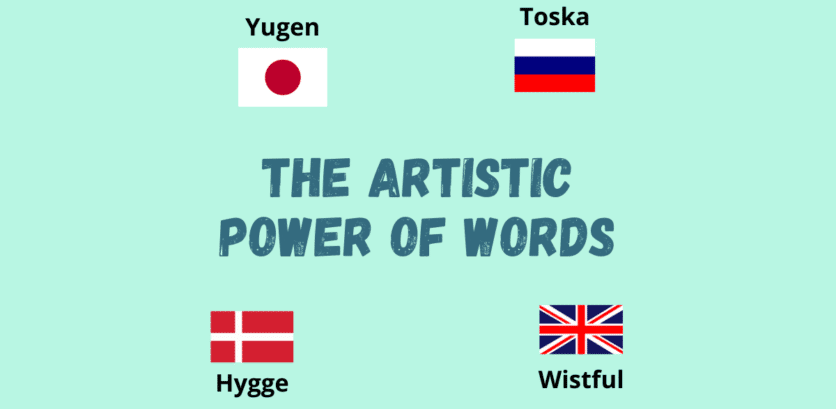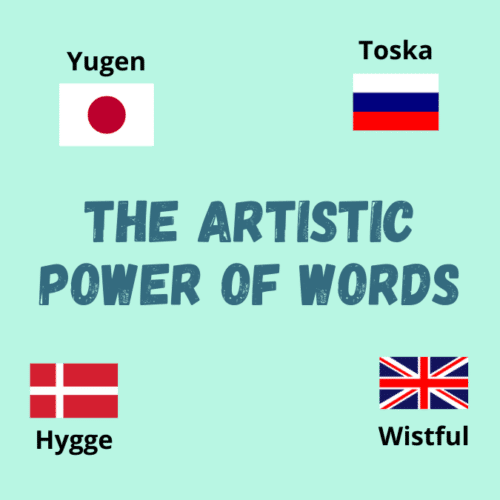Art has the ability to invoke a wide range of feelings within us. Whether it be in the form of a beautiful landscape painting, a fantastical movie, or a magical sentence in a novel, art drives us to feel things we’ve never felt before. But how often do we consider the power of a single word, entirely on its own?
We often take words and their power for granted, as we use words every day, for different purposes. In their most basic sense, words are used to communicate; they are the bedrock of civilization and a necessary medium in order for the world to function. However, words too can be artistic. Words, not only in the form of sentences, have the ability to inspire and describe great feelings, and have done so since the dawn of time. Such words exist across many different languages, yet do not possess direct translations into other languages.
Yugen (Japanese)
In his book An Account of My Hut, 12th century Japanese author Kamo no Chomei describes yugen as “an autumn evening under a colorless expanse of silent sky.” Japanese aesthetician Zeami Motokiyo wrote in the 15th century that yugen is “to watch the sun sink behind a flower clad hill. To wander on in a huge forest without thought of return. To stand upon the shore and gaze after a boat that disappears behind distant islands. To contemplate the flight of wild geese seen and lost among the clouds.”
Hygge (Denmark)
On the other side of the planet in Scandinavia, namely Denmark, hygge is an important part of daily life. Although a word, hygge can also be seen as a way of life to many. In its most basic sense, it means embracing and finding joy in the simple things in life. Think of the mood of coziness and contentment of a calm, quiet day, wearing something that feels nice against your skin, like a soft sweater, drinking a hot beverage, and kicking back on a comfortable chair or couch with something that makes you feel good, such as a good book or even good conversation with good company. Think of fireplaces, snow, or gentle rain.
Wistful (English)
The multi-faceted English word wistful can best be used to describe feelings of melancholy and yearning. It is often associated with a bit of sadness, yearning for something that possibly never was or is simply no longer accessible or possible, perhaps something in the past. Such words demonstrate the human capacity for feelings and ability to examine the depth of the human experience.
Toska (Russian)
This is a beautiful, poetic word that is best described by Russian author Vladimir Nabokov:
“No single word in English renders all the shades of toska. At its deepest and most painful, it is a sensation of great spiritual anguish, often without any specific cause. At less morbid levels it is a dull ache of the soul, a longing with nothing to long for, a sick pining, a vague restlessness, mental throes, yearning. In particular cases it may be the desire for somebody of something specific, nostalgia, love-sickness. At the lowest level it grades into ennui, boredom.”
Hiraeth (Welsh)
Have you ever felt the feeling of longing, almost a homesickness for a place or a time that no longer exists? This could be a time period of one’s life, as well as a single memory or feeling long past. The place may still exist, the people who were part of the experience may still exist, but that moment in time or the feelings associated with that experience are but a memory. Such words remind us of the bittersweet feelings that comprise the human experience.
These words are but only several of the many beautiful words across thousands of languages. The beauty of language lies in the fact that it is living and breathing art and are the closest thing to describing human feelings throughout the arc of life. Although some languages do not have their own direct translations of these words, as humans, we can understand the feelings they seek to describe. Languages may be unique from one another, however, the words and feelings they seek to identify unite us as a species, reminding us that we are not so different from one another.

